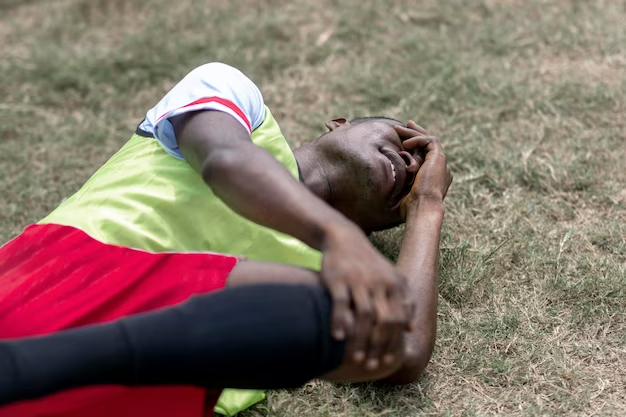In the competitive world of sports, South African athletes strive for peak performance and excellence. While training, nutrition, and mental preparation are often emphasized, the role of sleep in athletic performance is frequently overlooked. However, adequate and quality sleep plays a vital role in optimizing physical and cognitive function, recovery, and overall athletic performance. In this article, we will explore the importance of sleep in athletic performance in South Africa, highlighting its impact on training, performance, and injury prevention.
- Physical Performance and Energy:
Sleep is crucial for physical performance and energy levels. During sleep, the body repairs and rejuvenates itself, allowing muscles to recover from intense training sessions. Sufficient sleep contributes to optimal energy levels, reaction times, coordination, and overall athletic endurance. Athletes who prioritize sleep experience improved strength, speed, agility, and accuracy in their respective sports.
- Cognitive Functioning and Decision-Making:
Quality sleep is essential for optimal cognitive functioning, including attention, memory, concentration, and decision-making. These cognitive abilities are critical in sports where split-second decisions and strategic thinking are paramount. Athletes who are well-rested exhibit sharper focus, enhanced situational awareness, and better decision-making skills, giving them a competitive edge on the field or court.
- Injury Prevention and Recovery:
Sleep plays a vital role in injury prevention and recovery. Lack of sleep can lead to decreased coordination, slower reaction times, and compromised motor skills, increasing the risk of accidents and injuries. Additionally, during sleep, the body releases growth hormone, which aids in tissue repair, muscle growth, and injury recovery. Sufficient sleep promotes faster healing, reduces inflammation, and enhances the body’s ability to bounce back from intense physical exertion.
- Hormonal Balance:
Proper sleep is crucial for maintaining hormonal balance, which is essential for athletic performance. Sleep deprivation can disrupt hormonal regulation, leading to imbalances in growth hormone, cortisol (stress hormone), testosterone, and insulin. These imbalances can hinder muscle growth, recovery, and overall athletic performance.
Tips for Athletes to Optimize Sleep:
- Establish a Consistent Sleep Schedule: Maintain a regular sleep-wake routine, aiming for 7-9 hours of sleep each night. Consistency helps regulate the body’s internal clock and improves sleep quality.
- Create a Sleep-Conducive Environment: Ensure your sleep environment is dark, quiet, cool, and comfortable. Use blackout curtains, earplugs, or white noise machines to minimize external disturbances.
- Wind Down Before Bed: Establish a pre-sleep routine that promotes relaxation, such as reading, stretching, or engaging in mindfulness exercises. Avoid electronic devices that emit blue light, as it can interfere with sleep quality.
- Manage Stress: Implement stress management techniques, such as meditation, deep breathing exercises, or journaling, to help relax the mind and promote restful sleep.
- Avoid Stimulants: Limit or avoid caffeine and alcohol intake, as they can disrupt sleep patterns and negatively affect sleep quality.
- Prioritize Recovery Strategies: Incorporate post-training recovery strategies such as foam rolling, stretching, and contrast therapy to promote muscle recovery and prepare the body for restorative sleep.
- Seek Professional Help: If you experience persistent sleep problems, consider consulting a healthcare professional or sleep specialist who can provide guidance, diagnose sleep disorders, and recommend appropriate treatments if necessary.
In South Africa’s competitive sports landscape, adequate and quality sleep is an essential component of athletic performance. By recognizing the impact of sleep on physical and cognitive functioning, injury prevention, and recovery, athletes can prioritize sleep as a fundamental pillar of their training regimen. By implementing healthy sleep habits and seeking optimal rest, South African athletes can unlock their full potential and achieve peak performance on the field, track, court, or any sporting arena they aspire to excel in. Remember, sleep is not just downtime; it is an integral part of an athlete’s journey toward success.










